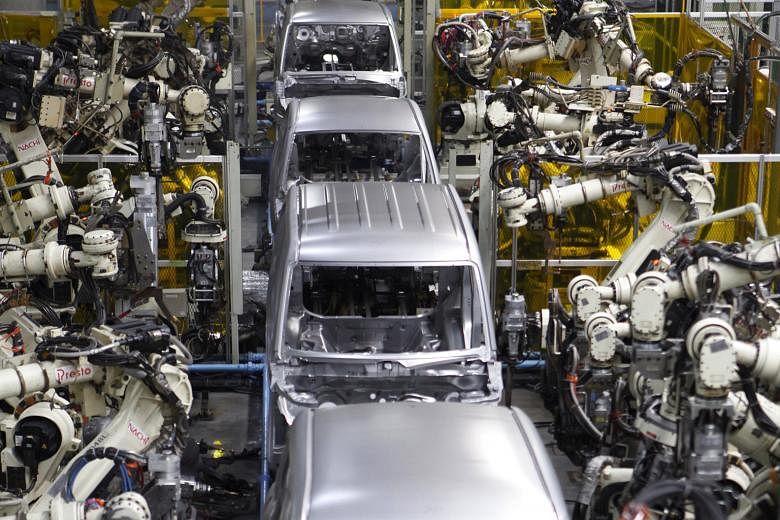Asia's economic outlook looks bright despite challenging conditions thanks to the region's embrace of productivity growth and automation technologies, said Deutsche Bank yesterday.
But economists at the bank's regional investor conference here yesterday also noted a period of slower growth is taking hold globally.
They have forecast stagnant or slower growth across the world this year, with the United States expected to drop from a 2.4 per cent expansion last year to 1.4 per cent this year, while the euro zone will stay unchanged at 1.5 per cent.
China will drop from 6.9 per cent to 6.7 per cent this year, while Japan's economy is expected to contract 0.4 per cent this year after growing 0.5 per cent in 2015. Emerging Asia - of which Singapore is considered a part - will slow from the 6.2 per cent expansion last year to 6 per cent.
"We all need to get used to these slower growth rates until some way to get potential growth up can be found. That's where I would argue the Asian perspective is more positive than the G3 (the US, Europe, Japan)," global economics and Asia-Pacific research head Michael Spencer told a briefing at the Marina Bay Sands. "In the long run, what drives potential growth is productivity growth - finding more efficient ways to produce the same goods or providing the same services with less labour."
The use of new innovations and technologies, from robotics and the Internet of things to the emergence of virtual reality, will be the decisive factor, he added. "Here again, Asia has an important role to play, both as the provider of the hardware and also at the forefront of the use of these technologies.
"Despite all the gloom about China, this is a bright part of the Chinese picture. Since 2013, it has been the largest market for robots in the world and it expects to become the largest robot producer in a couple of years."
Meanwhile, Singapore stands out as a mature economy. Deutsche Bank put it at the top of its structural performance ranking for emerging Asia, above Hong Kong, in second place, and Taiwan, third.
Positives aside, there are pressing concerns that may prove disruptive. Chief economist and global research head David Folkerts-Landau expects the US Federal Reserve to move for the next rate hike next month, just ahead of the Brexit referendum in Britain.
Mr Folkerts-Landau called the referendum a "profound" event and Britain leaving the European Union a "catastrophic" outcome.
"The UK has a moderating impact on Brussels in terms of policymaking (of the EU). Brexit will mean an EU dominated by Germany and France and hence a much less effective union. There may also be other countries that ask themselves: If the United Kingdom leaves, then why should we stay?"


